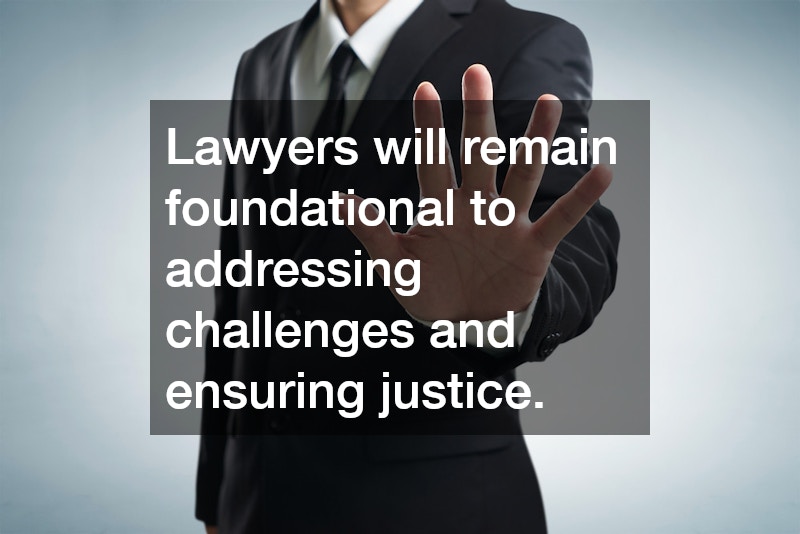
Divorce is often seen as a difficult and emotionally charged process, but there is a growing trend toward resolving marital separations amicably through a divorce on mutual agreement. This approach allows couples to part ways cooperatively, avoiding prolonged disputes and unnecessary emotional strain. Central to this process is the guidance of skilled legal professionals, whose expertise ensures the divorce is conducted smoothly, fairly, and in compliance with the law. Lawyers specializing in divorce, family law, and related areas play a vital role in helping couples navigate legal requirements, financial considerations, and child custody matters.
What Is a Divorce on Mutual Agreement?
Definition and Legal Basis
A divorce on mutual agreement refers to a legally sanctioned separation where both spouses voluntarily agree to the terms of their divorce. Unlike contested divorces, which often involve disputes and litigation, mutual divorce emphasizes collaboration and consensus. The legal basis for such divorces varies by jurisdiction, but generally, laws require that both parties consent, fulfill certain residency or waiting period requirements, and provide a clear settlement covering property, finances, child custody, and affordable child care if applicable. Lawyers specializing in divorce or family attorney services can clarify these legal prerequisites and guide couples through compliance.
Differences from Contested Divorce
The most significant difference between a divorce on mutual agreement and a contested divorce lies in conflict resolution. Contested divorces often involve disagreements over property, finances, or child custody, which may result in lengthy court battles. By contrast, a mutual agreement avoids adversarial proceedings, saving time, reducing legal fees, and fostering a cooperative atmosphere. A local divorce lawyer can help both spouses understand the legal nuances and ensure that mutual consent is appropriately documented and enforceable.
Why Couples Choose Mutual Agreement
Couples often opt for a divorce on mutual agreement to minimize emotional distress, reduce costs, and maintain civility, especially when children are involved. Mutual divorces provide the flexibility to craft personalized arrangements regarding asset division, alimony, and parenting plans. Legal guidance from divorce attorneys ensures these agreements are fair, realistic, and legally binding. Couples may also find that resolving matters amicably preserves relationships and promotes a healthier post-divorce dynamic.
Legal Prerequisites for Mutual Divorce
Before initiating a divorce on mutual agreement, certain legal prerequisites must be met. These include both spouses consenting to the divorce, completing required documentation, and satisfying waiting periods or residency requirements mandated by law. A family attorney or divorce lawyer will review these criteria, ensuring the couple meets all obligations before filing. Compliance with legal prerequisites not only expedites the process but also prevents future disputes or challenges to the divorce agreement.
Initial Consultation With a Lawyer
The initial consultation with a local divorce lawyer or family attorney is critical. During this meeting, the lawyer assesses the couple’s situation, explains the legal process, and outlines potential outcomes. This consultation often includes discussions about property division, child custody arrangements, and financial support. Lawyers may also provide insights into related matters, such as estate planning services, bankruptcy lawyers, or local insurance agent consultations, ensuring that all aspects of the couple’s legal and financial obligations are addressed.
How Can a Lawyer Facilitate a Divorce on Mutual Agreement?

Legal Advice and Representation
Lawyers provide essential legal advice and representation during a divorce on mutual agreement. They explain rights and responsibilities, ensuring that each spouse understands the implications of the proposed agreement. Representation extends beyond consultation to include negotiating terms, reviewing legal documents, and advocating for clients in court when necessary. Legal expertise helps couples avoid common pitfalls, ensuring that settlements are both fair and enforceable.
Mediation and Negotiation Support
Mediation is a cornerstone of a divorce on mutual agreement, and lawyers often serve as mediators or support clients through third-party mediation. By facilitating constructive discussions, legal professionals help spouses reach consensus on complex matters such as property division, child support, and alimony. Experienced lawyers apply negotiation skills honed through years of practice, promoting equitable solutions while minimizing tension.
Paperwork and Documentation
The procedural aspect of divorce on mutual agreement requires accurate and complete documentation. Lawyers assist in preparing legal forms, financial affidavits, parenting plans, and property settlement agreements. Accurate documentation prevents delays, disputes, or court rejections. Legal guidance ensures that documents comply with local regulations and reflect the agreed-upon terms of the divorce.
Communication With Opposing Counsel
Even in mutually agreed divorces, communication with the other party’s lawyer is often necessary. Lawyers manage these interactions professionally, advocating for their client’s interests while maintaining a collaborative approach. By serving as intermediaries, divorce attorneys help prevent misunderstandings, clarify legal points, and ensure that both parties are aligned throughout the process.
What Are the Steps Involved in Mutually Agreeing on Divorce Terms?
Identifying Common Grounds
The first step involves identifying areas of agreement and potential conflict. Lawyers help spouses focus on common goals, such as equitable property division, child welfare, and financial security. By establishing mutual understanding early, legal professionals facilitate smoother negotiations and lay the groundwork for a comprehensive agreement.
Drafting the Agreement
Once common grounds are identified, lawyers draft the formal divorce agreement. This document outlines terms regarding property, finances, alimony, child custody, and visitation schedules. Drafting requires precision, as any ambiguity may lead to disputes later. Legal expertise ensures that all terms are clearly articulated and legally binding.
Reviewing Financial Disclosures
Transparency is critical in a divorce on mutual agreement. Lawyers guide clients in disclosing assets, debts, income, and expenses. Reviewing financial disclosures ensures fairness, prevents hidden liabilities, and facilitates accurate property division. In some cases, collaboration with bankruptcy lawyers or local insurance agents may be necessary to resolve financial matters fully.
Settling Child Custody and Support
For couples with children, settling custody and support arrangements is a priority. Lawyers assist in creating parenting plans that reflect each parent’s role and responsibilities, while considering the child’s best interests. They may also provide a guide for parents to navigate schedules, schooling, and other responsibilities, ensuring a smooth transition after a divorce on mutual agreement. Legal guidance ensures compliance with state laws and protects both parental rights, fostering a stable post-divorce environment.
Finalizing and Signing the Agreement
After negotiations and revisions, the final agreement is signed by both parties. Lawyers verify that the document is complete, enforceable, and filed with the appropriate court. This final step formalizes the divorce on mutual agreement, providing a legal framework for future interactions and minimizing the risk of disputes.
What Are the Benefits of Hiring a Lawyer for This Process?

Expert Guidance
One of the most significant benefits of hiring a lawyer is access to expert guidance. Legal professionals understand the nuances of divorce law, ensuring that all aspects of the agreement are compliant and protective of their client’s interests. Guidance includes advice on property division, financial planning, and child custody, as well as insights into related services like estate planning services or local homeowner insurance companies.
Reduction of Emotional Stress
Divorce can be emotionally taxing, and lawyers provide support that reduces stress. By handling negotiations, paperwork, and court communications, lawyers allow clients to focus on personal well-being and family matters. This support is especially valuable in a divorce on mutual agreement, where maintaining civility and cooperation is key.
Protection of Legal Rights
Lawyers safeguard clients’ legal rights throughout the process. They ensure that agreements are equitable, that children’s welfare is prioritized, and that financial obligations are clear. Legal protection extends to preventing unintended consequences, such as overlooked debts or unfair property division.
Efficient Resolution
The involvement of a lawyer often leads to faster, more efficient resolution. Experienced legal professionals streamline communication, manage documentation, and guide clients through procedural requirements. Efficiency reduces delays, avoids unnecessary legal fees, and ensures timely finalization.
Long-Term Stability
By ensuring that agreements are comprehensive and enforceable, lawyers contribute to long-term stability. Properly drafted agreements reduce the likelihood of future disputes, providing clarity for property rights, financial responsibilities, and child custody arrangements.
What Challenges Might Arise, and How Can a Lawyer Help Overcome Them?
Misunderstandings Between Parties
Even in amicable divorces, misunderstandings can occur. Lawyers mediate disputes, clarify points of contention, and facilitate compromise. Their involvement helps prevent minor disagreements from escalating into significant conflicts.
Complex Property Division
Property division can be complicated, particularly when multiple assets, debts, or investments are involved. Lawyers ensure that property settlement agreements accurately reflect ownership and value, often consulting with financial experts to guarantee fairness.
Alimony Disputes
Alimony, or spousal support, can be a source of tension. Legal professionals evaluate the financial needs of each party and apply legal standards to determine appropriate support. Lawyers help negotiate terms that are fair, realistic, and sustainable.
Child Custody Conflicts
Child custody matters require careful consideration of each parent’s role and the child’s best interests. Lawyers assist in drafting parenting plans, negotiating schedules, and advocating for fair arrangements, providing guidance to protect both children and parents.
Legal Procedure Delays
Delays in legal procedures can prolong the divorce process. Lawyers manage timelines, ensure proper filings, and communicate with the court to minimize delays. Their proactive approach keeps the process on track, avoiding frustration for both parties.
How Do Lawyers Ensure Fairness and Equity?

Assessing Each Party’s Needs
Lawyers assess the needs of each spouse, considering financial, emotional, and familial factors. This comprehensive evaluation informs equitable agreements, ensuring that both parties receive fair treatment.
Legal Advocacy Skills
Strong legal advocacy skills are critical in a divorce on mutual agreement. Lawyers articulate their clients’ interests, negotiate effectively, and safeguard rights throughout the process. Advocacy ensures that agreements are balanced and legally sound.
Conflict Resolution Strategies
Conflict resolution strategies, including mediation and structured negotiations, help maintain civility. Lawyers apply these techniques to address disputes, clarify misunderstandings, and foster cooperation between spouses.
Legal and Ethical Standards
Adherence to legal and ethical standards is fundamental. Lawyers ensure that agreements comply with applicable laws, uphold ethical principles, and protect the interests of all parties, including children and dependents.
What Documents Are Required in a Divorce on Mutual Agreement?
Financial Affidavits
Financial affidavits detail each spouse’s income, assets, and debts. Lawyers assist in preparing accurate disclosures to ensure fair property division and spousal support arrangements.
Parenting Plans
Parenting plans outline custody arrangements, visitation schedules, and decision-making responsibilities. Legal guidance ensures that plans are practical, compliant with the law, and centered on the child’s best interests.
ment Agreements
Property settlement agreements formalize the division of assets and liabilities. Lawyers draft these documents to prevent future disputes and provide clarity on ownership and financial responsibilities. After agreements on property are finalized, couples may need to coordinate moving. Lawyers can advise on logistics, including hiring professional movers to ensure a smooth transition after a divorce, on mutual agreement.
Legal Filings and Certificates
Legal filings and certificates, including court submissions and official notices, are necessary to formalize the divorce. Lawyers ensure all paperwork is complete, accurate, and submitted on time.
Final Divorce Decree
The final divorce decree officially terminates the marriage and enforces the agreed-upon terms. Legal oversight ensures that the decree reflects the mutual agreement and is enforceable by law.
What Are the Costs Involved and How Can a Lawyer Help Manage Them?

Legal Fees Breakdown
Legal fees vary depending on complexity, location, and the services required. Lawyers provide transparent fee structures and explain costs associated with documentation, negotiation, and court appearances.
Estimating Total Costs
A family attorney helps estimate total costs, factoring in filing fees, professional consultations, and any associated services such as estate planning services or local insurance agent consultations. Accurate cost estimation allows couples to plan financially.
Payment Plans and Agreements
Many lawyers offer flexible payment plans or alternative arrangements. These options make legal assistance more accessible and affordable, ensuring that financial constraints do not hinder proper representation.
Cost-Effective Strategies
Lawyers can suggest cost-effective strategies, such as minimizing court appearances, using mediation, and consolidating paperwork. Strategic planning reduces overall expenses while maintaining high-quality legal support.
Financial Management Post-Divorce
After divorce, lawyers advise on ongoing financial management, including budgeting, child support obligations, and insurance planning. Coordinating with a local homeowner insurance company or local insurance agent may be part of ensuring post-divorce stability.
What Is the Typical Timeline for a Divorce on Mutual Agreement?
Initial Consultation and Preparation
The process begins with consultations, documentation gathering, and assessment of mutual interests. Lawyers guide clients through initial steps to establish a clear strategy.
Drafting and Negotiation Phase
Next, lawyers assist in drafting agreements and negotiating terms. Effective communication and legal expertise are essential to ensure both parties are satisfied with the proposed arrangements.
Final Approval and Signing
The finalized agreement is signed by both parties and filed with the court. Lawyers oversee this step to ensure completeness and enforceability.
How Confidentiality and Privacy Are Managed?
Lawyer-Client Privilege
Lawyers uphold confidentiality through the principle of lawyer-client privilege. All communications regarding the divorce are protected, allowing clients to discuss sensitive matters openly.
Handling Sensitive Information
Sensitive information, including financial records and child custody details, is carefully managed. Lawyers ensure that only authorized parties access this information.
Secure Documentation Practices
Lawyers maintain secure documentation, storing records safely and protecting against unauthorized access. This ensures that personal and financial data remain confidential.
Privacy During Negotiations
Negotiations often involve private discussions. Legal professionals safeguard these interactions, preventing leaks and protecting clients’ reputations.
Digital Security Concerns
In the digital age, lawyers employ secure communication channels and encrypted document storage to prevent cyber breaches and ensure ongoing privacy throughout the divorce process.
A divorce on mutual agreement offers couples the opportunity to separate amicably while minimizing stress, conflict, and costs. Central to this process is the role of a skilled lawyer, who provides legal guidance, mediates disputes, ensures compliance with legal requirements, and protects each party’s rights. From drafting property settlement agreements to finalizing parenting plans and managing financial disclosures, legal professionals facilitate a fair, efficient, and stable resolution. By engaging qualified divorce attorneys, family attorneys, and related legal experts, couples can navigate the complexities of divorce with confidence, knowing that their mutual agreement is both enforceable and equitable.



